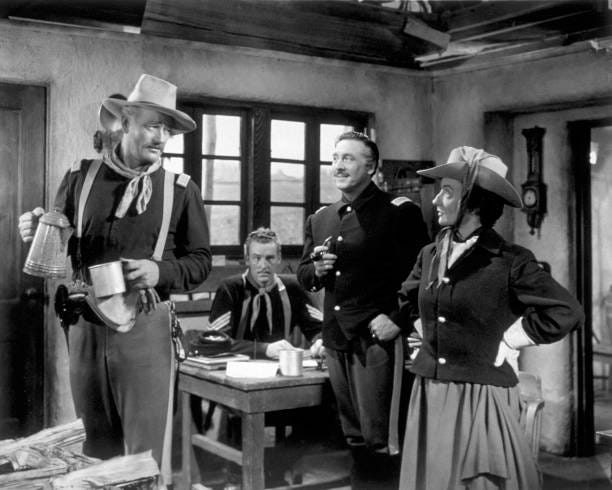Mildred Natwick on John Ford: Every Single Detail
“There was no waste with him. No waste of time or sentiment or talk."
From a conversation between Mildred Natwick and James Grissom
1001 Park Avenue
June, 1991
Q: Can we talk about John Ford?
A: “What is it you’d like to know?”
Q: “What he was like, and how it was to work with him.”
A: “I always think of him as bold and straight: His thoughts and his words came at you with great clarity, and I liked that. He didn’t talk much, and when he did, it was, I thought, perfect. What he would bring to you was helpful and thoughtful. I remember in ‘The Long Voyage Home’ how we wanted my clothes to hang, to appear. How he wanted me to feel in those clothes and in my body. There was no analysis, just clear direction. Stand over here and remember these things, and I could do with that what I wished, and he would nod if he approved. If he thought it could be improved, he would ask that we do it again.
“He had a reputation for being coarse, but I rarely saw it. I don’t know this—I can’t prove it—but I think someone told him to be on good behavior around me, because he watched his words, and once when he slipped and yelled at John Wayne about something, and the language got rough, he stopped and turned and apologized to me.
“I reminded him, he said, of a lot of people in his life: Aunts, teachers, a member of the Abbey Theatre. I had a—how did he put this?—a comforting, common face. I don’t have any illusions about how I look, so I wasn’t hurt by that. It is how I’m seen, and he used me to good advantage.
“There was no waste with him. No waste of time or sentiment or talk. I’m okay with that. I was okay with that. I feel that he achieved his effects without too much conversation. He planned very well and very far in advance, so, in a sense—and I do not mean this negatively—we were called to appear and move into the positions that had been determined by him. Everyone fell in line. But in those lines—that line of a scene—we could experiment and add what we felt we could. I loved working with him.
“I don’t talk about him with many people—book writers—because they have an idea of him that doesn’t square with what I knew and saw. I don’t like it when ideas are set about people, right or wrong. So I don’t talk about him much. When I do, I say what I said today, and many people are dissatisfied. I really don’t have anything else.”





